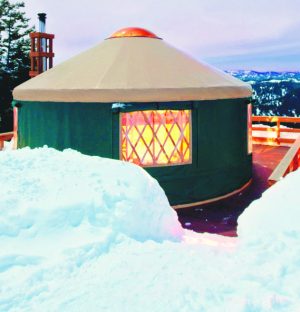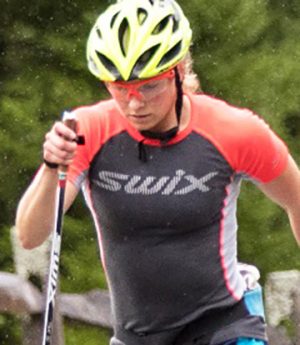June 04, 2019 – Olympic gold medalist Kikkan Randall had just finished a 20-year cross country ski racing career and would be diving into retirement at just 36-years-old. Navigating the transition from elite-level competition to everyday life can be both challenging and daunting for athletes; fortunately, the Dartmouth College Tuck School of Business Next Step program helps athletes bridge that gap and make transition a bit smoother.
![Members of the Dartmouth College Tuck School of Business Next Step program 2019 class pose for a photo following the two-week course. [P] Rob Strong](http://skitrax.com/wp-content/uploads/2019/06/Dartmouth-Next-Step-program-2019-IMG_7132_0-copy-525x229.jpg)
In the program, athletes learn the basics of business curricula and how to effectively apply their valuable, relevant skills, and experiences to the business world as they begin the next step of their careers. The four former U.S. Ski & Snowboard athletes who participated in the program this spring – including Randall, Keaton McCargo (moguls), Foreste Peterson (alpine), and Kaylin Richardson (alpine) – walked away with the ability build on and translate their athletic experiences to the business world in ways that successfully accelerates their progress towards a rewarding, meaningful business career.
U.S. Ski & Snowboard’s Director of Athlete Career & Education (ACE) Julie Glusker, often champions the notion of “whole athlete development”, advocating to broaden the scope of athlete development and support beyond just athletic ability. Tuck’s Next Step program is just one example of this concept in practice.
![Former U.S. Ski Team athletes Kaylin Richardson, Kikkan Randall, Foreste Petersen and Keaton McCargo pose with Paralympic Alpine Skier Tyler Walker [P] Rob Strong](http://skitrax.com/wp-content/uploads/2019/06/US-Ski-Team-Athletes-IMG_7131-copy-525x394.jpg)
“We are thrilled to have had four of our U.S. Ski & Snowboard athletes from alpine, cross country, and freestyle attend the Tuck Next Step program this past April,” noted Glusker. “We received really positive feedback from each of our participants about the relevance and purpose of Next Step; the program and curriculum was geared around learning current business practices, identifying and utilizing experience and aptitudes intrinsic to athletes, and honing and fostering networking skills. Our athletes loved the academic learning and social development aspects of Next Step – and even enjoyed the daily morning group workouts.”
Peterson, a former U.S. Ski & Snowboard alpine athlete, who went on to become a high-achieving student-athlete at Dartmouth College and now skis for the independent “Team X” in Park City, Utah, understands the importance of building knowledge and a network that will help her transition to the next stage in her life when she’s ready to make that leap.
“Next Step was an eye-opening, exhausting, yet a totally inspiring and rewarding experience,” said Peterson, who continues to compete at the NorAM level, but has also had FIS Ski World Cup starts in during the 2018 and 2019 seasons. “The days were long and jam-packed but there was not one lecture, workshop, presentation, group activity, or social event that I didn’t take something away from or find valuable. The program instilled an unprecedented confidence in me that I attribute not just to the new tools and skill sets I acquired, but to feeling an overwhelming sense of community amongst all of the transitioning athletes and military personnel in the program. The connections made and relationships forged across multiple networks were a huge asset in and of itself.”
Additionally, program participants found the program material relevant and transferable. Freestyle alumna McCargo reports that the curriculum was “extremely transferable to many areas of life even if you don’t intend to work in business or get an MBA.” She even noted that she’d love to encourage former teammates, and even some of her former coaches, to participate in the program, adding that “any transitioning athlete should take part in this program. The information and experience are of extremely high importance.”Both the network and the self-discovery are two of the biggest takeaways for McCargo and Peterson. “The community at Tuck and the diverse group of people in my cohort really made my time there. Everyone was so friendly and committed to helping each other,” reflected McCargo. “Transitioning, whether it be from sport, the military, or from one career path to the next is hard; it is nice to know that there are others like you and that you have support.”
For many elite-level athletes, fear and stress are common emotions they encounter when considering making the leap to the unknown. They will be leaving behind something they’ve known and lived for such a large part of their lives. Peterson felt that the future was always a source of tension, but that “there was a self-discovery component incorporated into the program that I found to be particularly powerful.” Throughout the program, Peterson could feel her tension lifting. “I can honestly say that I not only have a newfound clarity for what I want that ‘next step’ of my life to look like, but I feel genuinely excited and eager to take the necessary actions to navigate what lies ahead and make my vision a reality.”
Peterson, a former U.S. Ski & Snowboard alpine athlete, who went on to become a high-achieving student-athlete at Dartmouth College and now skis for the independent “Team X” in Park City, Utah, understands the importance of building knowledge and a network that will help her transition to the next stage in her life when she’s ready to make that leap.
“Next Step was an eye-opening, exhausting, yet a totally inspiring and rewarding experience,” said Peterson, who continues to compete at the NorAM level, but has also had FIS Ski World Cup starts in during the 2018 and 2019 seasons. “The days were long and jam-packed but there was not one lecture, workshop, presentation, group activity, or social event that I didn’t take something away from or find valuable. The program instilled an unprecedented confidence in me that I attribute not just to the new tools and skill sets I acquired, but to feeling an overwhelming sense of community amongst all of the transitioning athletes and military personnel in the program. The connections made and relationships forged across multiple networks were a huge asset in and of itself.”
Additionally, program participants found the program material relevant and transferable. Freestyle alumna McCargo reports that the curriculum was “extremely transferable to many areas of life even if you don’t intend to work in business or get an MBA.” She even noted that she’d love to encourage former teammates, and even some of her former coaches, to participate in the program, adding that “any transitioning athlete should take part in this program. The information and experience are of extremely high importance.”
Both the network and the self-discovery are two of the biggest takeaways for McCargo and Peterson. “The community at Tuck and the diverse group of people in my cohort really made my time there. Everyone was so friendly and committed to helping each other,” reflected McCargo. “Transitioning, whether it be from sport, the military, or from one career path to the next is hard; it is nice to know that there are others like you and that you have support.”
For many elite-level athletes, fear and stress are common emotions they encounter when considering making the leap to the unknown. They will be leaving behind something they’ve known and lived for such a large part of their lives. Peterson felt that the future was always a source of tension, but that “there was a self-discovery component incorporated into the program that I found to be particularly powerful.” Throughout the program, Peterson could feel her tension lifting. “I can honestly say that I not only have a newfound clarity for what I want that ‘next step’ of my life to look like, but I feel genuinely excited and eager to take the necessary actions to navigate what lies ahead and make my vision a reality.”
Randall was impressed with the curriculum and the teaching staff’s ability to present such an impressive volume of relevant content that would apply directly to new careers. Along with that, her peers were inspiring. “All of my fellow students were dedicated, bright and inspiring people,” Randall noted. “While we had common experiences and struggles, everyone brought something unique to the program. I learned as much from my classmates as I did from the professors and guest speakers.”
Glusker hopes this program will become a “meaningful tradition and strong heritage for our athletes as they navigate the possibilities of transition beyond sport,” and encourages athletes – both current and former – to seek out opportunities that will aid them in creating valuable life skills and creating meaningful connections.






![National camp action [P]...](https://skitrax.com/wp-content/uploads/2019/08/Duluth-4-2019-08-08-at-10.46.51-AM-300x246.png)
![Matt Liebsch on the CXC Elite Team [P] CXC...](https://skitrax.com/wp-content/uploads/2019/08/Matt-Liebsch-CXC.2-525x700.4-300x267.jpg)
![Dan LaBlanc [P]...](https://skitrax.com/wp-content/uploads/2019/08/Dan-LaBlanc-img_1855.3.jpg)

![Tuck Next Step program Spirit Day. [P]](http://skitrax.com/wp-content/uploads/2019/06/Kikkan-Next-Step-Prog-3.14.48-PM-copy-525x309.png)